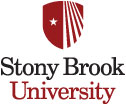Newswise — STONY BROOK, NY, December 30, 2015 – Heart attack patients who had previously undergone cardiac bypass surgery are about twice as likely to have a delay in receiving angioplasty, or another form of revascularization, compared to heart attack patients who had no history of bypass surgery or previous angioplasty. This finding, from a study led by a Stony Brook Heart Institute cardiologist Luis Gruberg, MD, and published in the journal of the American College of JACC: Cardiovascular Interventions, may lead to a finding new ways to improve hospital arrival to treatment times for heart attack patients with a bypass history.
Revascularization to clear a blocked artery that causes a heart attack should be completed on patients within 90 minutes upon hospital arrival. For a majority of patients, this time is met. But for many reasons sometimes that time is delayed.
“Patients who have had previous bypass surgery present a more complex case with more complex anatomy,” said Dr. Gruberg, Professor of Medicine, Division of Cardiovascular Medicine and Director or Research for Interventional Cardiology at the Stony Brook Heart Institute. “Blood vessel blockages can be more difficult to identify after bypass procedures, and more images are also taken with these patients thus delaying their time for a procedure,” he explained.
In the paper, titled “The Association of Previous Revascularization with In-Hospital Outcomes in Acute Myocardial Infarction Patients,” Dr. Gruberg and colleagues assessed data from more than 15,600 heart attack patients at 297 U.S. hospitals. Overall, approximately six percent of those patients had previous bypass surgery. Of those patients, 76 percent received revascularization for a heart attack within 90 minutes upon hospital arrival. For the patients who did not have previous bypass surgery, including those who did have angioplasty, 88 percent received revascularization within 90 minutes upon hospital arrival.
Dr. Gruberg emphasized that the results illustrate a significant gap in the time it takes to get to treatment between the two groups and the need to improve hospital arrival to treatment times for patients who had undergone previous bypass surgery. He warned, however, that those with a history of bypass surgery may always face treatment delays because very often they have more advanced heart disease as well as other comorbidities to consider before treatment.
The next step in the research, he added, is to verify the findings by way of examining other large data sets of heart attack patients with and without a bypass surgery history.
Co-authors of the paper include researchers from Duke University, the University of Texas Southwestern Medical Center, Brigham and Women’s Hospital in Boston, Loma Linda University in California, the University of Missouri-Kansas City, and the William Beaumont Hospital in Michigan.
About Stony Brook University Heart Institute:Stony Brook University Heart Institute is located within Stony Brook University Hospital as part of Long Island's premier university-based medical center. The Heart Institute offers a comprehensive, multidisciplinary program for the prevention, diagnosis and treatment of cardiovascular disease. The staff includes 50 full-time and community-based, board-certified cardiologists and cardiothoracic surgeons, as well as 350 specially trained anesthesiologists, nurses, physician assistants, nurse practitioners, respiratory therapists, surgical technologists, perfusionists, and other support staff. Their combined expertise provides state-of-the-art interventional and surgical capabilities in 24-hour cardiac catheterization labs and surgical suites. And while the Heart Institute clinical staff offers the latest advances in medicine, its physician-scientists are also actively enhancing knowledge of the heart and blood vessels through basic biomedical studies and clinical research. To learn more, visit www.heart.stonybrookmedicine.edu.
Greg FilianoMedia Relations ManagerSchool of MedicineStony Brook UniversityOffice of Communications and Marketing631-444-9343[email protected]
